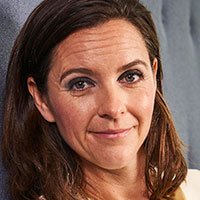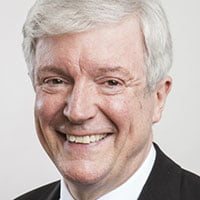BBC, C4 call for tech protection
The BBC and Channel 4 have called on the UK government to ensure public service content maintains prominence in the era of voice-controlled search and other technologies from firms such as Amazon and Apple.

Alex Mahon
In separate presentations yesterday to parliament and media regulator Ofcom, BBC and C4 chiefs Tony Hall and Alex Mahon said the current rules over public service broadcaster (PSB) discoverability “need to be updated urgently.”
They argued existing legislation fails to take changing consumer viewing habits into account, with audiences watching content “beyond the traditional TV set” through Netflix or Amazon via smart TVs, plug-in streaming sticks, tablets, phones and games consoles.
The two broadcasters are calling on government to give PSBs a “protected prominent position” on the first page of any digital service’s user interface, either live or on-demand, to ensure their position in an increasingly SVoD-driven environment.
Mahon cited evidence that a third of UK households now subscribe to the likes Netflix or Amazon Prime and that by 2020 the “majority of all video viewing by people under 35 will be on-demand.”
In particular, Mahon warned that tech companies’ voice-activated virtual assistants, such as Amazon’s Alexa or Apple’s Siri for iPhone, could bury PSB content because the firms were not at liberty to prioritise them over more lucrative offers from private companies.
Her comments come as C4 today announced a deal that will see its VoD service All4 become the first on-demand platform in the country to integrate with Google Assistant so viewers can stream shows such as Gogglebox and First Dates on Chromecast from Google Home and Google Home Mini devices.
“When you plug a streaming stick into a TV, what gets promoted is what the manufacturer wants to push to you,” Mahon said yesterday. “Of course, many of the providers of these streaming sticks or set-top boxes also provide their own content offerings – which of course come front and centre. This is all unregulated, with no proviso for PSBs at all.

Tony Hall
“When you turn on a smart TV, the device is entirely geared towards operating through its own user interface and hub. The positions on those screens are governed by the auction of spots and by negotiation with the manufacturers.
“This means British viewers are directed to content through the user interface of the device manufacturer, not through the EPG that parliament has so carefully legislated around and that Ofcom has powers to regulate. None of these devices are regulated for prominence – and we are facing the prospect of a new generation of viewers who will be unable to find PSB content as they go to watch TV.”
Mahon added that if the government still believes public service broadcasting is important, it must expedite legislation change as a matter of urgency. Echoing her words, Lord Hall said the “current law is out of date” and that the BBC and C4 had the support of the other terrestrial broadcasters, ITV and Channel 5 in their campaign.
“The existing statute is from another age. It was crafted in a world before smart TVs, streaming sticks and voice recognition,” he said. “New legislation would mean there would be proper, protected PSB prominence on any significant device in the UK.”
Hall said he had three main areas of concern: ensuring British voices continue to be heard in an increasingly global market; safeguarding the public from fake news; and protecting high quality children’s entertainment.
Of the latter, the BBC chief said: “There’s a danger we are sleepwalking towards a world in which children and young people barely encounter PSB content – even content that they love and that inspires them.”
He added: “Far from being anti-choice, this is about securing choice for UK audiences in the future; it’s about securing what Britain has to offer, as well as us enjoying big shows from the US.”
The appeal from the BBC and C4 came at the same time as the pair, together with commercial broadcaster ITV and network operator Arqiva, committed £125m (US$167m) over five years to transform their Freeview digital terrestrial joint venture into “a fully hybrid platform.”














.jpg)




























